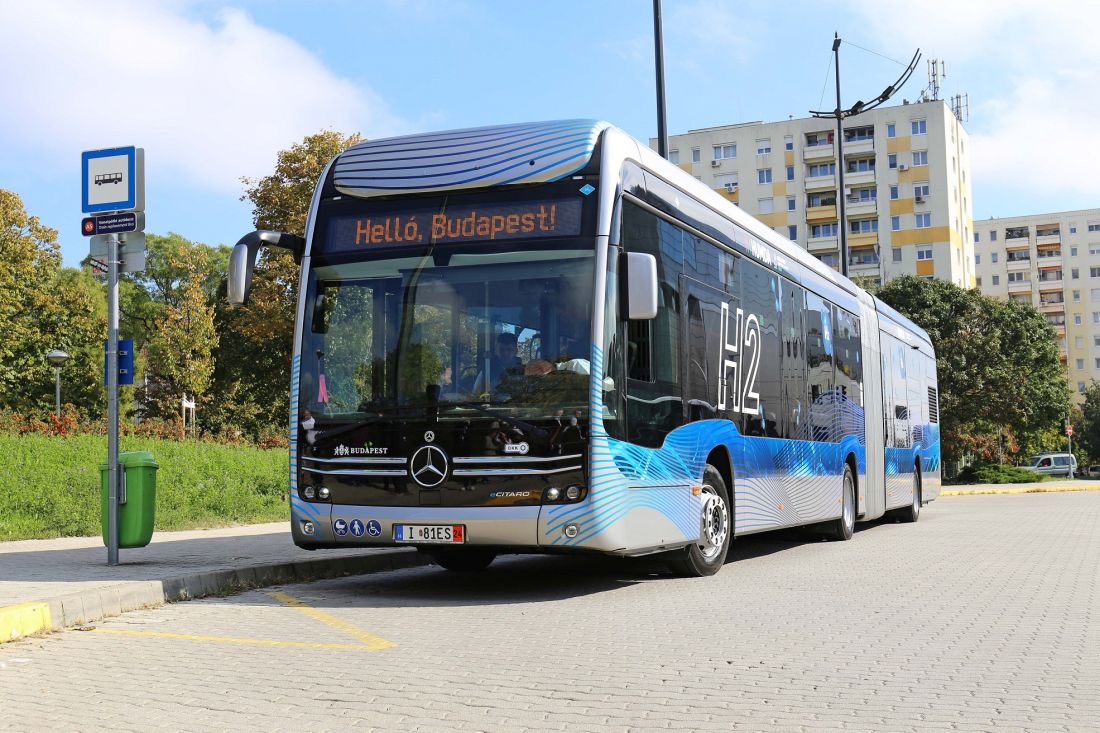Budapest Tests Hydrogen-Powered Mercedes-Benz eCitaro Fuel Cell Bus
Key Ideas
- Budapest's public transport company, BKV, is testing a Mercedes-Benz eCitaro fuel cell bus powered by a hydrogen fuel cell.
- The bus operates with a 60 kW Toyota fuel cell stack, acting as a range extender to charge energy storage batteries, rather than a primary energy carrier.
- Passengers in Budapest can ride the fuel cell bus on the 8E route free of charge during the testing period supported by the Hungarian Transport Federation.
- Budapest is also investing in new electric buses and the number of battery electric cars in Hungary is on the rise, showcasing a commitment to sustainable transportation.
Budapest's public transport company, BKV, is conducting a trial of a Mercedes-Benz eCitaro fuel cell bus powered by a hydrogen fuel cell. This model of the eCitaro bus utilizes a 60 kW Toyota fuel cell stack, which acts as a range extender to charge the energy storage batteries rather than serving as the primary energy source. The bus operates similarly to electric models, requiring the plug-in-only batteries to be charged before each shift. This initiative is a part of Budapest's efforts to explore environmentally friendly public transport options. During the testing period from October 8 to 16, passengers can enjoy a free ride on the 8E route. The Hungarian Transport Federation is also backing this trial, demonstrating wider support for eco-friendly transportation solutions. Additionally, Budapest is expanding its electric bus fleet with a contract for 70 new electric buses from BYD. The city is also witnessing a surge in the number of battery electric cars, with over 60,000 such vehicles now on Hungarian roads. These developments highlight a positive trend towards sustainable and green mobility in Budapest.
